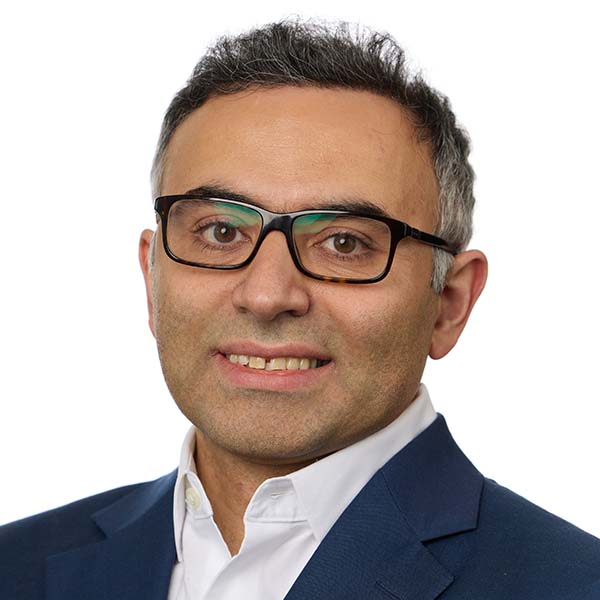AI-driven approach integrates Multi-Modal Data and Biomechanics for Better Diagnosis and Tracking of Chronic Obstructive Pulmonary Disease (COPD)
by Maureen Stanton
Kayhan Batmanghelich, Assistant Professor of Electrical & Computer Engineering, Hariri Institute Junior Faculty Fellow and AIR Affiliate at Boston University, was awarded a $3.1 million competitive renewal R01 grant from the National Institutes of Health’s National Heart, Lung, and Blood Institute. With this grant, Batmanghelich will lead transformative research on Chronic Obstructive Pulmonary Disease (COPD) with collaborators from Boston University College of Engineering, University of Pittsburgh School of Medicine and Brigham and Women’s Hospital.
 COPD is a progressive and heterogeneous disease affecting over 300 million people worldwide. The project, titled “Integrating Multi-Modal Data and Biomechanics in COPD: Toward Robust and Interpretable Biomarkers for Disease Subtyping and Progression,” aims to overcome critical limitations in current diagnostic tools by developing novel, interpretable biomarkers using advanced artificial intelligence.
COPD is a progressive and heterogeneous disease affecting over 300 million people worldwide. The project, titled “Integrating Multi-Modal Data and Biomechanics in COPD: Toward Robust and Interpretable Biomarkers for Disease Subtyping and Progression,” aims to overcome critical limitations in current diagnostic tools by developing novel, interpretable biomarkers using advanced artificial intelligence.
“Lung function tests and CT scans are standard for diagnosing COPD, but they don’t capture how the disease progresses,” says Batmanghelich. “Current radiomics lack sensitivity, and most deep learning models are limited, hard to interpret, and sensitive to scan variations.”
Batmanghelich and his team will address these challenges by building on their previous work that used self-supervised deep learning to generate radiomic features that are more generalizable than traditional methods. Their approach integrates multi-modal data, including CT imaging, genetic and genomic data, and personalized biomechanical modeling of the tissue. This multi-modal framework will enable more accurate disease subtyping and earlier, patient-specific predictions of COPD progression. A key goal is ensuring that the AI-generated insights are clinically interpretable and trusted by physicians.
Read the whole story at the Hariri Institute website.
